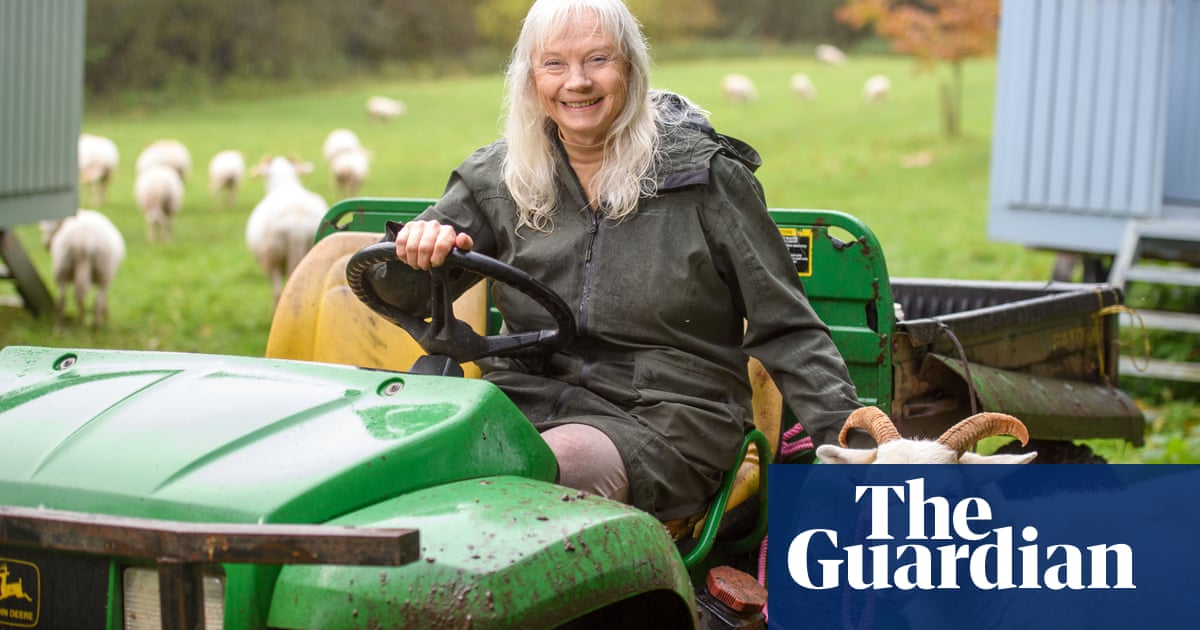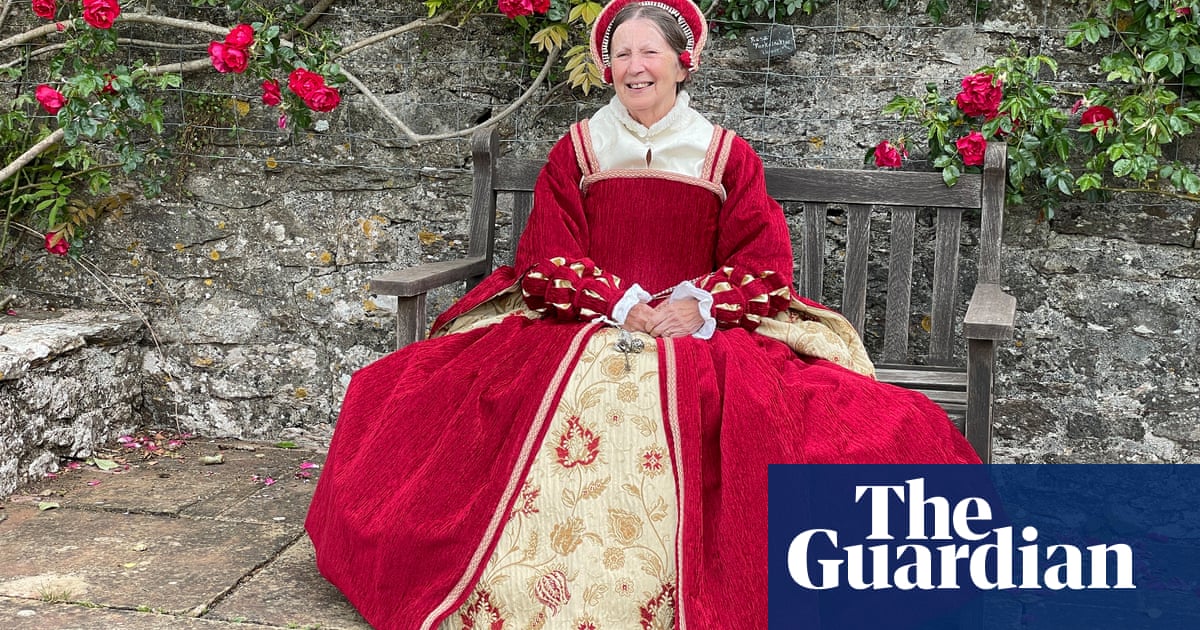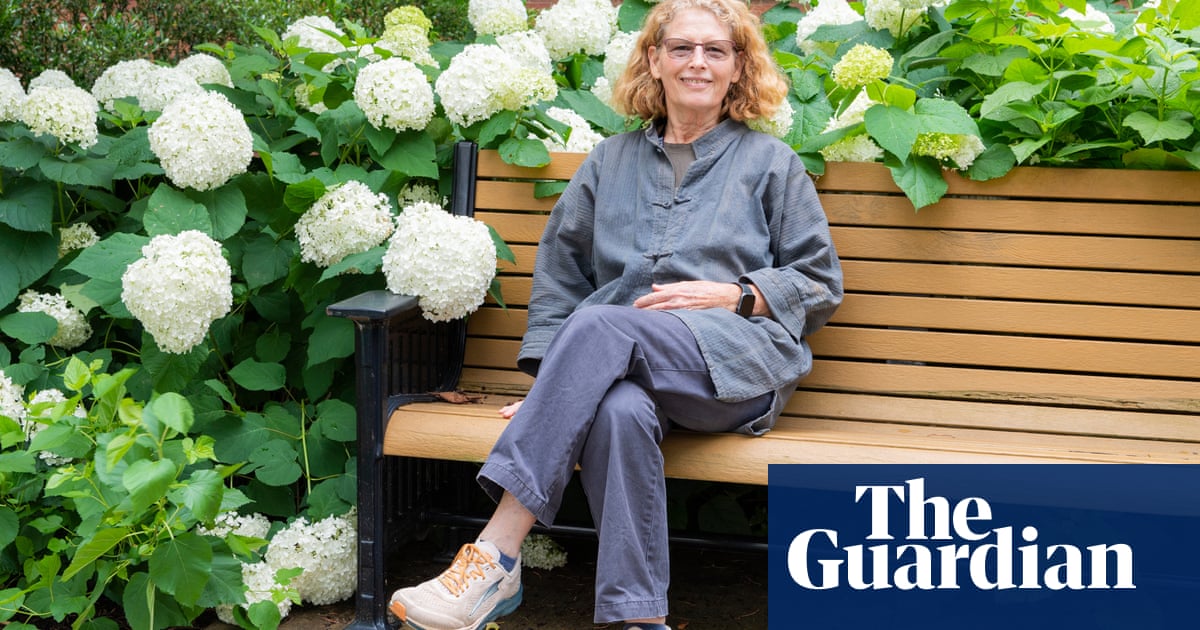
In her rented home in central Amsterdam, where she lived for many years, Moniek Kramer dreamed of greenery. She grew up by the river Amstel on the outskirts of the city, until her parents separated when she was 10, and, maybe, “was longing to go back there”. In adulthood, she kept looking for a house, “a small house”. She had all but given up, when, at 65, she found it.
Kramer was reading an article in De Groene Amsterdammer newspaper about Henry David Thoreau, the 19th-century American philosopher whose book Walden is based on his experience of living in a woodland cabin. An advert caught her eye: “‘Are you looking for your own Walden hut?”
The next day she was on a train out of Amsterdam, and an hour later the sellers met her at the station. “The woods were growing into the house,” she says. There were trees, thorn bushes and rubbish. The cabin had a sinister vibe. “But I saw the possibilities.” She plundered her pension – and moved in. “I saw that I could make space here.”
Kramer has worked as an actor, film-maker, scriptwriter and teacher of creative writing. Her husband is a composer. “We don’t have loads of money. It was all I had.” Her mother had brought up Kramer and her three siblings alone, so she had always regarded money as her “safety belt”. “So I was scared. But I did it.”
Kramer, now 68, must have felt even more vulnerable when the pandemic hit, but somehow the “wood house” as she calls it, began to alter her perspective. Soon after buying it, she and three colleagues from the creative writing school at which she taught in Amsterdam decided to launch a scriptwriting school. “I thought: ‘If I can do it from my wood house I won’t feel so hand-around-throat.”
So, the house gave her the nerve to take things on, in a freer space? “I realise it was also to do with my father,” she says. Kramer stayed in touch with him after he had another family. Although she found him “difficult to cope with”, she says: “I always had this feeling that he loved me. I’m very old, but you stay a child with your parents.”
Her father died a year before she bought the house, but when his will was read, there was no mention of Kramer and her siblings from his first marriage. “I was so sad and angry,” she says. It was not because she hoped for financial benefit, but “I felt so not-seen, so disconnected.” The exclusion seemed “to symbolise a lack of love”.
So the wood house took on an added significance. “I wanted to make this paradise for my children [she has two sons] and grandchildren. When I die, there will be something that shows them love.”
The first year in the house was scary. “I had to prove to my family that it was the place I saw.” Or, she had to make it the place she saw.
“There was so much to do,” she says. She transported every tool by bicycle. “I was working far too hard because I wanted it for my children.” It took a triple hernia to slow her down, and then she came to a realisation: “I had to decide to do this for me and my husband,” Kramer says. It wasn’t fair to bring the children into her attempt to reconnect with what she had lost. “But I am very grateful that they like it here.”
For nearly 40 years, Kramer has done Zen retreats. “Zen is about ‘not knowing’, about penetrating the paradox in everything,” she says. Finally, in June, she completed the Jukai ceremony to become an official Zen Buddhist.
She had always had the sensation that “I ran behind myself. What is she doing? What’s happening”, but at the ceremony she felt a “flowing backwards of affection, and connection”, and realised that feeling connected “goes the other way around”. Even the disconnection from her father now changed. “I went through anger and pain, and at the end I realised he couldn’t help it.”
The wood house has answered much more than Kramer’s dreams. “It all starts with a longing,” she says. “But these longings have a life of their own, and they will find a way to materialise.”












